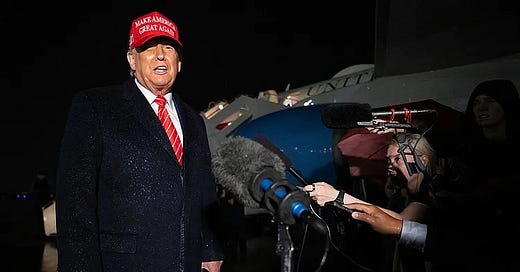Trump’s Foreign Policy? Reality TV Politik
Making peace is harder than buying skyscrapers. The president is learning this the painful way in the Middle East and Eastern Europe.
There’s realpolitik. And then there’s reality TV politik. There’s foreign policy realism, of the kind associated with Henry Kissinger. And then there’s Donald Trump’s twist: real estate-ism.
Anyone trying to assess the foreign policy of this White House needs to appreciate these distinctions. The various individuals responsible for national security in t…
Keep reading with a 7-day free trial
Subscribe to Niall Ferguson's Time Machine to keep reading this post and get 7 days of free access to the full post archives.





